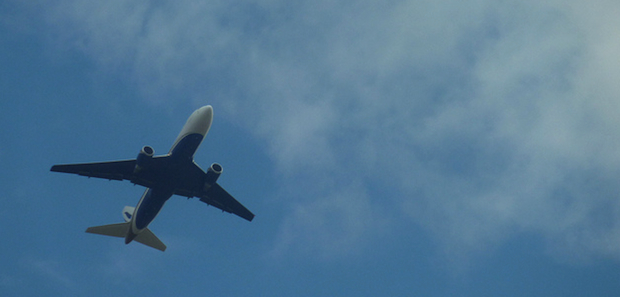Biofuel-powered aircraft have finally been approved, and could cut airlines' fuel costs in half. When's the maiden flight?

Biofuel-powered aircraft have finally moved into the real world now that the U.S.-based Air Transport Association has approved a fuel blend of up to 50% organic waste and non-food material (i.e. algae and wood chips) for passenger planes. This means that the next time you take a flight, it may be powered partially by waste. So why should you care? You're still going to be sitting in a cramped cabin and groped by TSA, right?
Ultimately, this could lead to lower flight prices, or at least help save cash-strapped airlines. Cars have had alternative fuel options for years--it's possible to go out to a dealership today and pick up a vehicle that can be powered by electricity or biofuel. But up until now, there have been few options (beyond fuel efficiency techniques) for passenger airlines hoping to avoid high fuel prices and carbon emissions.
Consider: Jet fuel currently costs $131 per barrel. Algae fuel could ultimately cost less than $50 a barrel, and jatropha (another promising airplane biofuel) costs only between $50 and $80 per barrel. High fuel costs mean plane tickets cost more money. Algae-powered planes could mean that you will at least be paying less money for the dehumanizing experience of air travel.
And now that a large biofuel blend is allowed on passenger aircraft, biofuel companies like Codexis, Solazyme, and Neste Oil can tap into the $139 billion per year aviation fuel market, according to Bloomberg. This could accelerate their development--and lead to better biofuels in our cars, too.
Want to take a spin in a biofuel-powered plane? Lufthansa plans to start a six-month trial in the next few weeks that will see the airline test a 50% blend of jatropha, camelina, and animal waste in one plane engine. The biofuel-powered flights will travel from Hamburg to Frankfurt.
[Image by Flickr user Smemon]
Reach Ariel Schwartz via Twitter or email.